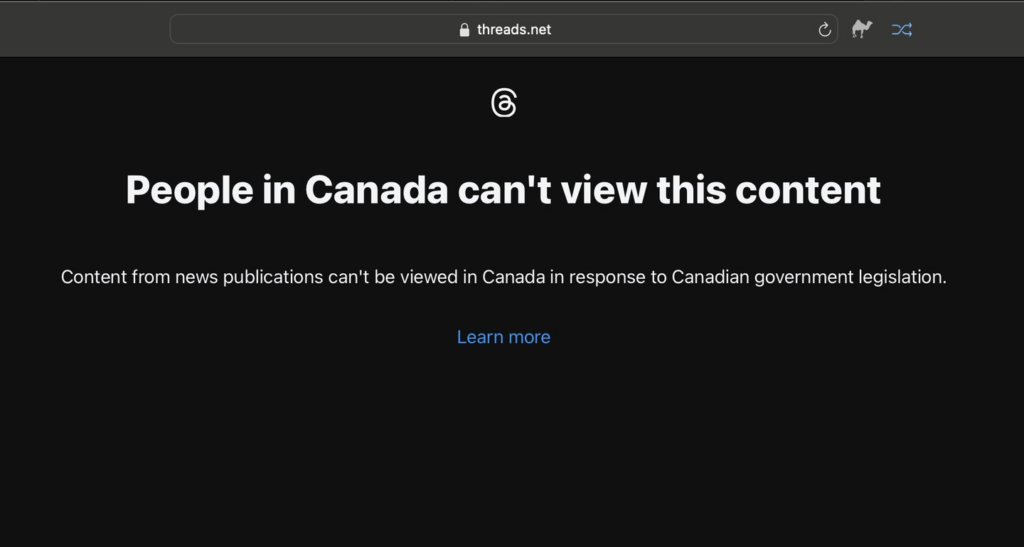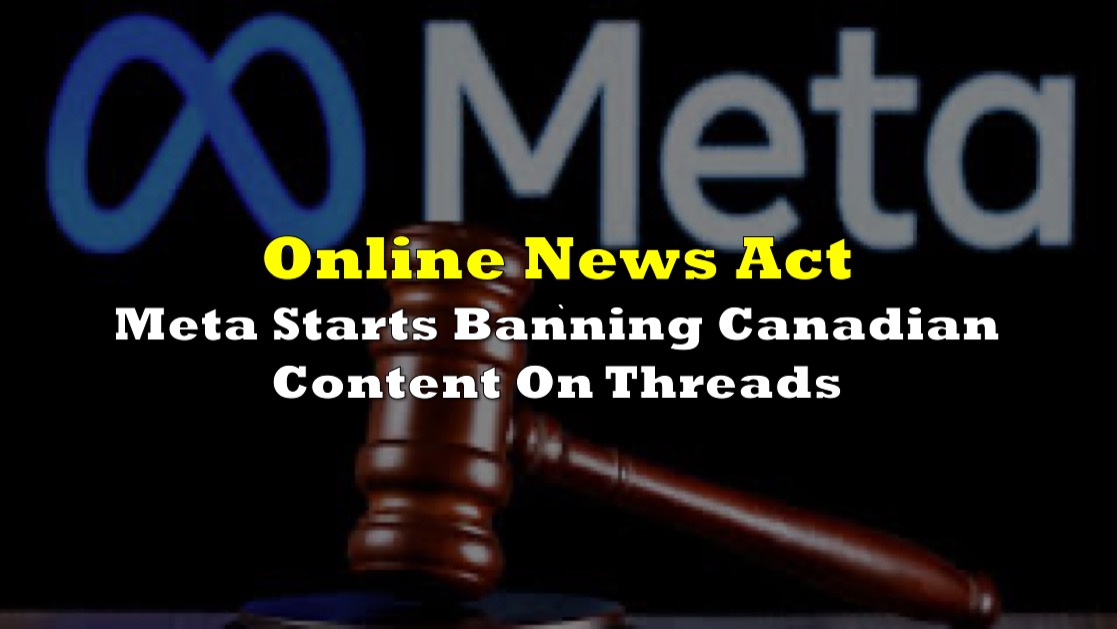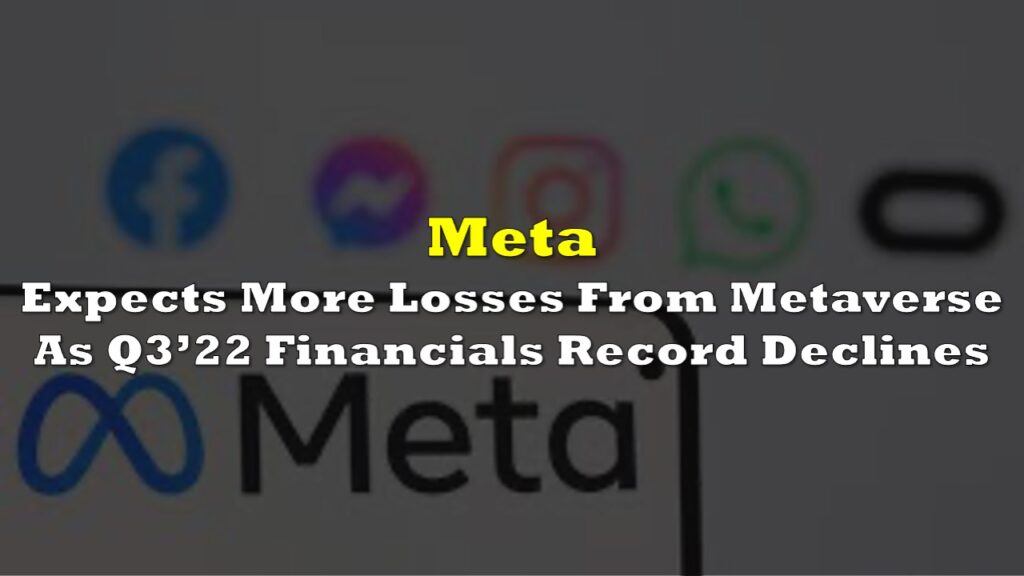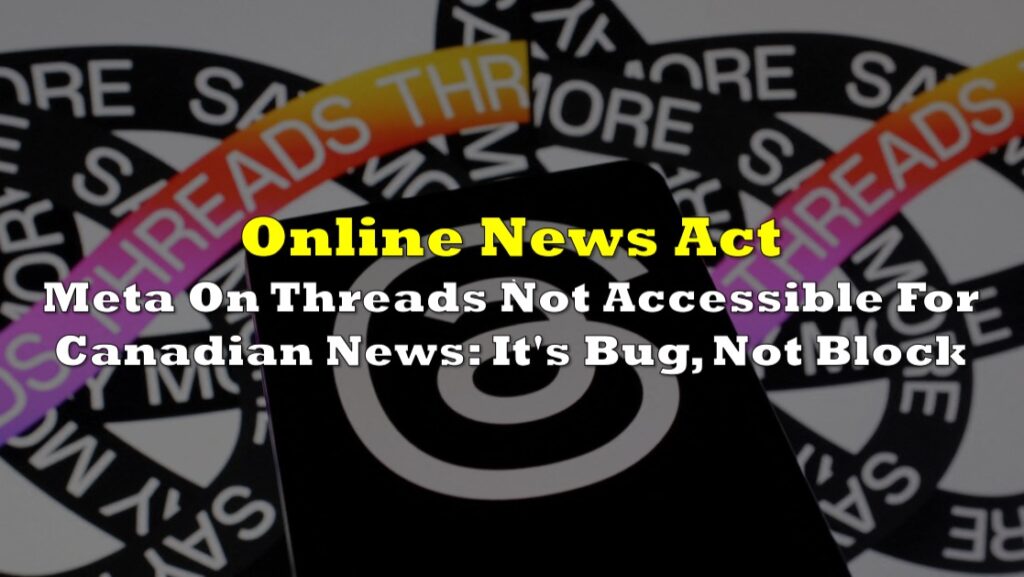In response to Canada’s Online News Act (Bill C-18), Meta (NASDAQ: META), the parent company of Facebook and Instagram, has expanded its news block to include Threads, escalating tensions with the Canadian government.

While Google has reached a deal with the government, Meta remains steadfast in its boycott, leading to concerns about the impact on the country’s media ecosystem.
Bill C-18, officially known as the Online News Act, aims to establish a framework requiring tech giants to compensate news outlets for their content. Although hailed by some as a positive step for the struggling journalism industry, the law has faced resistance from Meta and Google—the only two companies large enough to fall under its purview.
Amid the ongoing dispute, Meta blocked access to news on Facebook and Instagram for Canadians over the summer, asserting that the law is “fundamentally flawed.” Google, however, after months of negotiations, agreed to pay Canadian news outlets $100 million annually, avoiding a potential block.
Prime Minister Justin Trudeau remains resolute, stating, “We will continue to push Meta, that makes billions of dollars in profits, even though it is refusing to invest in the journalistic rigor and stability of the media.” The impasse raises questions about the future of Meta’s news services in Canada and the potential repercussions for the company.
The Online News Act applies to tech companies operating social media platforms or search engines in Canada, with a global revenue exceeding $1 billion and a monthly average of 20 million Canadian visitors or active users. Media outlets eligible for compensation include any news publisher with an online presence in Canada.
Under the legislation, tech companies must negotiate financial agreements with individual outlets or a single agreement distributing funds to multiple news sources. Google’s deal with the government allocates up to 30% of funds to broadcasters, including 7% for Canada’s public broadcaster, the CBC. The majority of funds will support print and online media, with allocations based on the number of full-time employees.
Similar legislation was enacted in Australia in 2021, prompting brief news blocks by Meta that ceased after amendments to the law. The UK and the US are also considering comparable laws.
Companies failing to comply with the Online News Act in Canada face fines by the regulatory body overseeing media and communication. Penalties for a first offense can reach up to $10 million, escalating to $50 million for subsequent offenses.
While the legislation has been praised by some, Meta argues that it misunderstands how the internet operates and claims minimal commercial gain from news content. Critics, including Michael Geist from the University of Ottawa, highlight the relatively small financial impact on publishers and the harm inflicted on Canadian news outlets during the dispute.
A recent study by the Media Ecosystem Observatory found a 90% decline in views of Canadian news on Meta platforms since the news ban. Local news outlets have been particularly affected, raising concerns about the resilience of the Canadian media ecosystem.
Information for this briefing was found via BBC and the sources mentioned. The author has no securities or affiliations related to this organization. Not a recommendation to buy or sell. Always do additional research and consult a professional before purchasing a security. The author holds no licenses.









